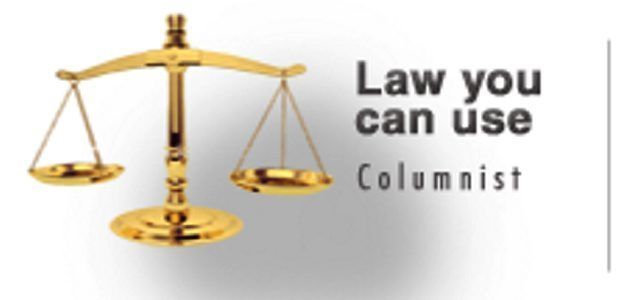Federal law regulates advertising
- Michelle Wood: SWCD
- May 16, 2011
- 412
Q: Who establishes and enforces advertising laws?
A: The Federal Trade Commission (FTC) has broad authority to prohibit unfair or deceptive acts or practices. Under this mandate, the FTC has issued regulations barring false and misleading advertisements. Only the FTC has the authority to enforce its regulations. However, the Federal Trademark Act of 1946, commonly known as the Lanham Act, protects private parties, such as consumers or competitors, against unfair competition and false advertising. In addition, most states have laws against unfair trade practices and false advertising.
Q: What does it mean for an advertisement to be unfair or deceptive?
A: Generally, an advertisement is deceptive if it contains a misrepresentation or omission that is likely to mislead reasonable consumers. Even if it is true, an advertisement may be considered deceptive if it is likely to mislead or cause injury, assuming the likelihood it will mislead or cause injury outweighs benefits to consumers or competitors.
Q: Must advertisers provide information to support their claims?
A: Yes. The FTC requires advertisers to have a reasonable basis for making objective claims in an advertisement. For example, if an advertisement claims that tests prove a certain result, then the advertiser must have appropriate test results that prove the claim. The level of support required depends on what claims are made or implied in the advertisement. The FTC evaluates certain factors to determine the level of proof needed. These factors include the type of product, type of claim, the benefit of a truthful claim, ease of substantiating a claim, consequences of a false claim, and the amount of substantiation experts in the field believe is reasonable.
Q: Does the FTC also make sure advertisers dont use other peoples copyrighted material or trademarks?
A: The FTC does not regulate the use of intellectual property (copyrighted works or trademarks such as pictures, images, characters, songs, logos or brands) in advertisements. However, an advertiser must get permission or a license from the owner of a copyright or trademark before including the work or trademark in an advertisement. Advertisers who do not consult copyright or trademark owners open themselves to lawsuits.
Q: Our company wants to run a promotional contest. What should we know before advertising it?
A: Make sure you are not conducting an illegal lottery. All 50 states and federal laws prohibit illegal lotteries. An illegal lottery is a lottery that is not run by the state and has the following three elements: (1) a prize – anything of value awarded to winners; (2) chance – random selection of winners; (3) consideration – monetary or some kind of non-monetary value given to participate. Advertisers may eliminate the chance element by making the sweepstakes a contest of skill. Advertisers often eliminate the consideration element by providing an alternative method of entry, such as the opportunity to enter by calling a toll free number, which does not require giving value to participate.
Q: What can happen to those who violate advertising laws and regulations?
A: The Federal Trade Commission (FTC) has a wide variety of ways to deal with violators. For example, the FTC may issue a cease and desist order to stop the illegal conduct. The FTC may further fence-in the advertiser by prohibiting misleading ads across all of the advertisers other unrelated product lines. The FTC also may order an advertiser to issue a corrective ad to counter the advertisers earlier misleading ads. In addition, a consumer or competitor may bring a claim (lawsuit) under federal or state law to recover damages (compensation, generally in the form of money) caused by unfair or deceptive practices or acts.
This Law You Can Use column was provided by the Ohio State Bar Association (OSBA). It was originally prepared by Janice Baker Whitlow, currently an attorney with General Electric Company in Cincinnati, and updated by attorney Jill P. Meyer of the Cincinnati office of Frost Brown Todd LLC. The column offers general information about the law. Seek an attorneys advice before applying this information to a legal problem. For more information on a variety of legal topics, visit the OSBAs website at http://www.ohiobar.org.

